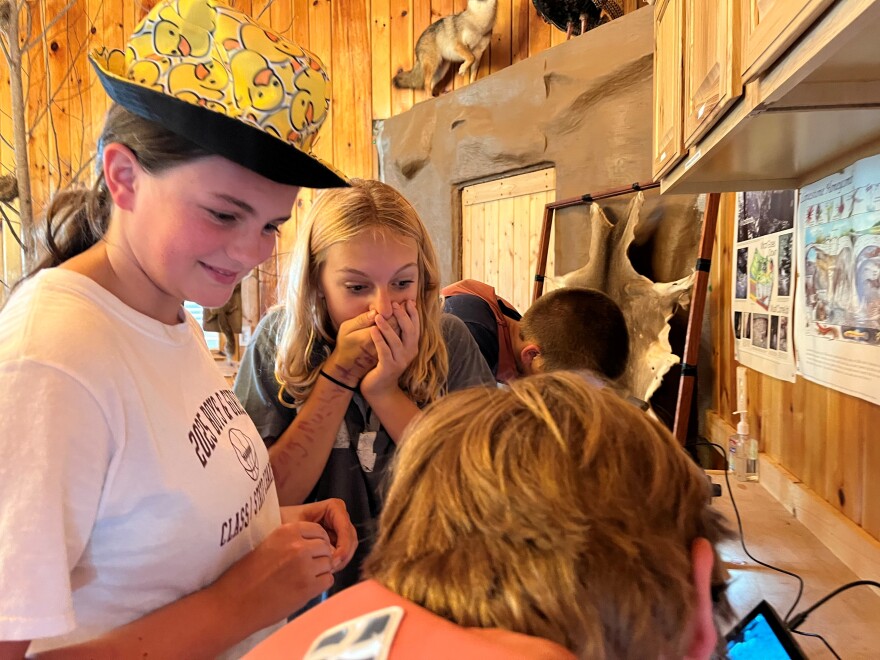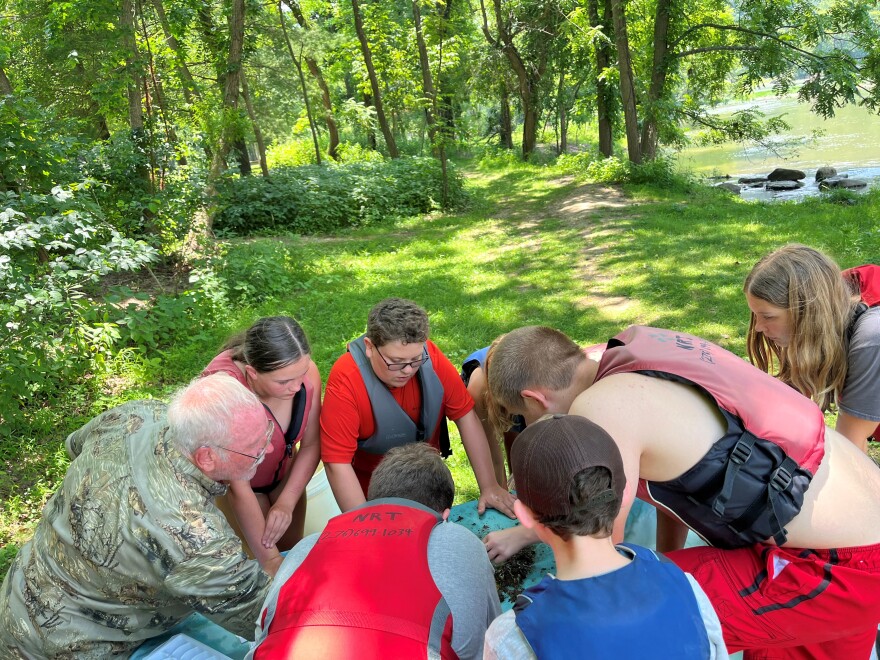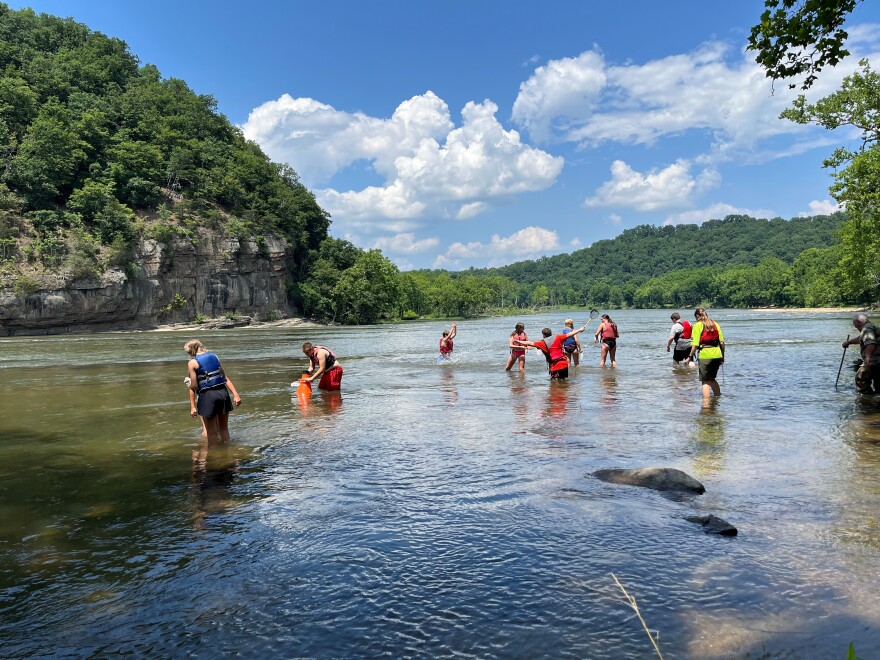For some families, summertime means juggling schedules to send kids to camp. As hectic as all this sometimes is, science backs up the importance of giving kids space to explore in nature. Radio IQ visited one summer camp in Southwest Virginia to hear how kids feel about time spent in nature.
A dozen kids and teenagers are eating lunch at New River Trail State Park. Like many people their age, they talk about movies and video games, but these kids are spending most of this week exploring the forest and river, through a day camp called Jr. Ranger.
“I like to spend a lot of time out in the wild,” says Mason Cox, who attended this camp last year, where he explored places he’s never seen.
“We went caving. And we had a blast,” Cox says.
This week-long day camp, called Junior Ranger camp, is for kids aged 11-14. They go fishing, practice archery, and go tubing and snorkeling in the New River.
Most of the campers say they prefer to spend a lot of their summer outside, hunting for berries, fishing, and riding bikes.
But not all of their classmates at school feel the same way, says 14-year-old Chandler Blankenship.
“A lot of people think, oh inside’s so great. But, no, when you go outside, you see a lot more than just the TV. I feel alive. So that’s why I like going outside more,” Blankenship says.
Another camper, Wren Patrick, agrees. “I would say, not a lot of the kids at my school like to, like, get out, or would hike and stuff.”
Even many of these kids, who prefer the outdoors, say they don’t have as much time to spend playing outside as they wish, because of school or their parents’ work schedules.

“A lot of the current generation are so overscheduled with extra curriculars and other things that they’re not having that unstructured time,” says Rosanna Breaux, an associate professor of psychology at Virginia Tech. She says there’s a lot of research to support that playing outside in nature has a wide range of benefits for children’s brain development, and mental health.
“Time outdoors or time in nature has been linked to better mental health,” Breaux says. “Specifically it’s been linked to improved mood, as well as reductions in depression anxiety and stress.”
Breaux says time outdoors also tends to be less structured and more imaginative than time spent on screens. This helps kids be more creative problem solvers and critical thinkers.
“You’re letting kids just have that time outside to be creative,” Breaux says.
She says summer camps can help provide space and freedom for kids to rediscover activities they enjoy doing outdoors.
For the kids at the Junior Ranger camp, it also means they can safely explore wild places with park rangers and community naturalists, who teach the science about plants and animals.
After lunch, the campers are introduced to some of the small animals that live in the river. 13-year-old Emily Gravley peers into a plastic container to look at a crawdad. It unexpectedly reaches out a claw towards her.
Gravely screams, laughing. She’s startled, but unharmed, and she uses a microscope to peer at the underbelly of the crawdad, as well as a water beetle.
After learning about the creatures, the campers walk down to the river in their life vests.
They step in the river, peering through orange cones that magnify what’s beneath the water. Some use nets to scoop up what they find.
Campers shout when they find something, like a minnow, a crawdad, or a snail. They put the animals in small plastic containers so the other campers can study them. After the lesson, they release the animals back into the river.
They spend the next hour-and-a-half learning science, but the lesson is informal, fun. And in the afternoon heat, most of the campers also swim a little and splash each other, as they’re studying what lives beneath the New River.



